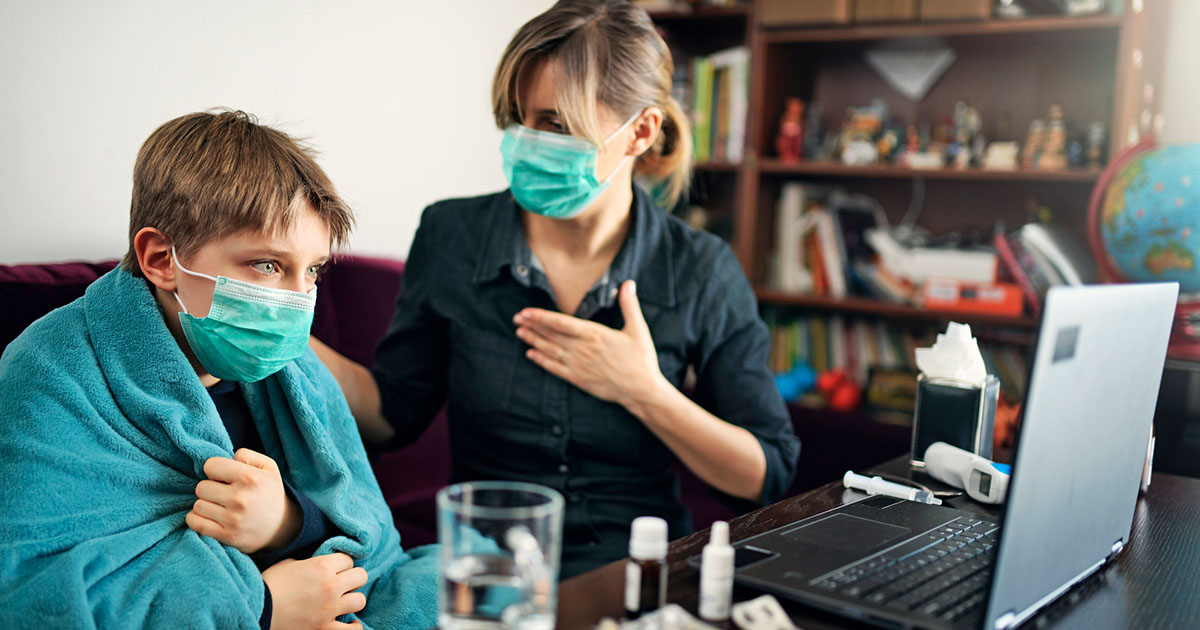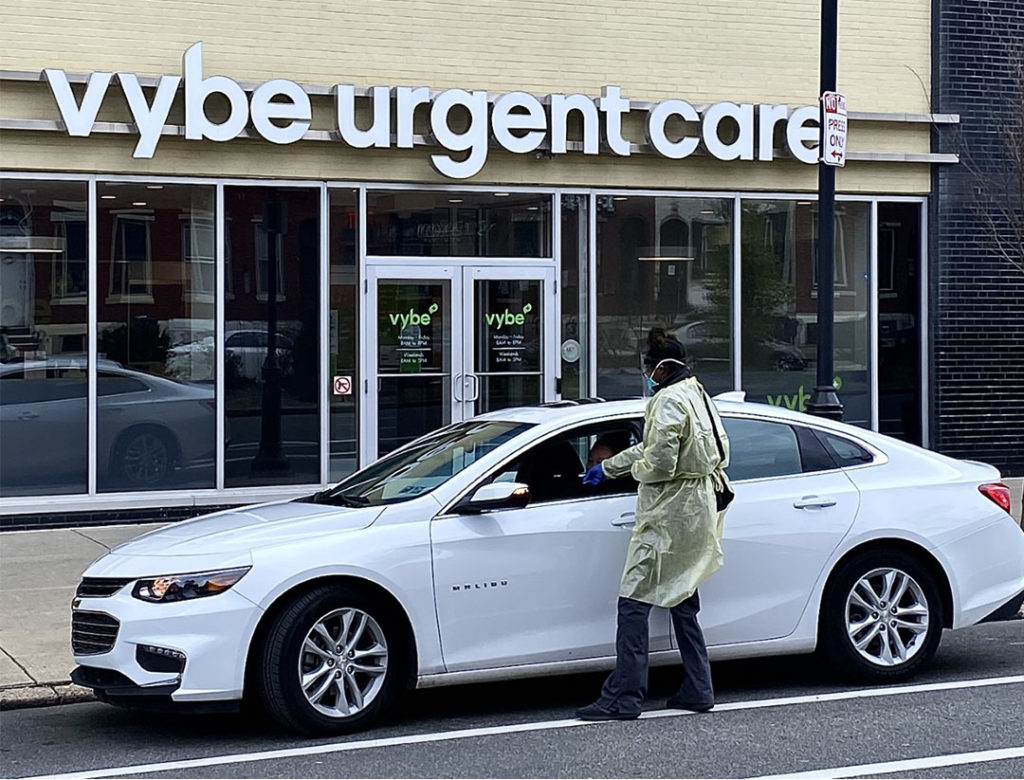
How do you see a doctor when you’re not feeling well and expected to be social distancing? That’s the question many Philadelphians have been asking since the beginning of the COVID-19 outbreak.
The answer is video visits from vybe urgent care. However, the term “video visits” has been thrown around a lot lately, and it might be tough to understand what they are and if they’re right for you. Here’s what you need to know about vybe’s new virtual doctor service.
Video visits (telemedicine), is defined by The World Health Organization (WHO) as “healing from a distance.” In other words, video visits are simply doctor-patient interactions that occur online. They offer patients an alternative way to communicate with a healthcare professional about non-medical emergencies that do not require an in-clinic visit. You can see a doctor online using your phone, tablet, or computer.
During the spread of COVID-19, it became clear that telemedicine is a safe and convenient way to receive high-quality care from the comfort of home. Put simply, it allows people to get healthcare while still practicing social distancing and limiting community exposure, as recommended by Public Health experts. Now, some patients prefer video visits compared to an in-person visit at an urgent care center. If your health concern is not possible to resolve with a video visit, vybe urgent care locations continue to see patients in-person. Whenever possible, we minimize the time in the waiting room to help reduce the risk of contact with other sick patients.
A vybe urgent care virtual visit can be used for the diagnosis of many common medical problems and minor health incidents. These issues could be something like minor flu or COVID-19 symptoms, or a small injury—something that vybe can address and does not require the emergency room. Video urgent care visits are not meant for life-threatening emergencies or to replace care for a chronic problem.
Think of a video visit the same way you would an in-clinic visit. You’ll still need to have items like your photo ID, credit or debit card, and insurance card. If you do not have insurance, no problem. Our telemedicine pricing begins at the same rate as an in-person visit. You’ll go through the insurance verification or payment options before the visit with our clinician.
A video visit is also a safe place to get answers if you’ve been exposed to COVID-19 or are experiencing symptoms such as fever, cough, sore throat, and shortness of breath. During an online doctor visit, the vybe provider will listen to your concerns and symptoms and recommend the next steps for care. If you need a COVID-19 test, you’ll be referred to a vybe location for either a diagnostic test (for active infection) or an antibody test.
 Telemedicine patient visiting vybe’s Spring Garden clinic for drive-up COVID-19 testing.
Telemedicine patient visiting vybe’s Spring Garden clinic for drive-up COVID-19 testing.
After you have all your necessary items, make sure that your computer or device has a camera and microphone, and has a strong connection to the internet (Chrome, Safari, and Firefox are recommended).
Visit vybe.care/video-visits to schedule your appointment. Once complete, you’ll get a link to start your visit. Upon entering the virtual waiting room, make sure you’ve allowed your browser access to your webcam and microphone (this will allow you to test your camera and mic while waiting for the doctor,) and type in your name. From there, simply kick back and relax! Your vybe provider will start your visit once they become available.
Update: with the COVID pandemic behind us, vybe is no longer offering telemedicine. Click here to see all vybe locations.
FIND YOUR VYBE